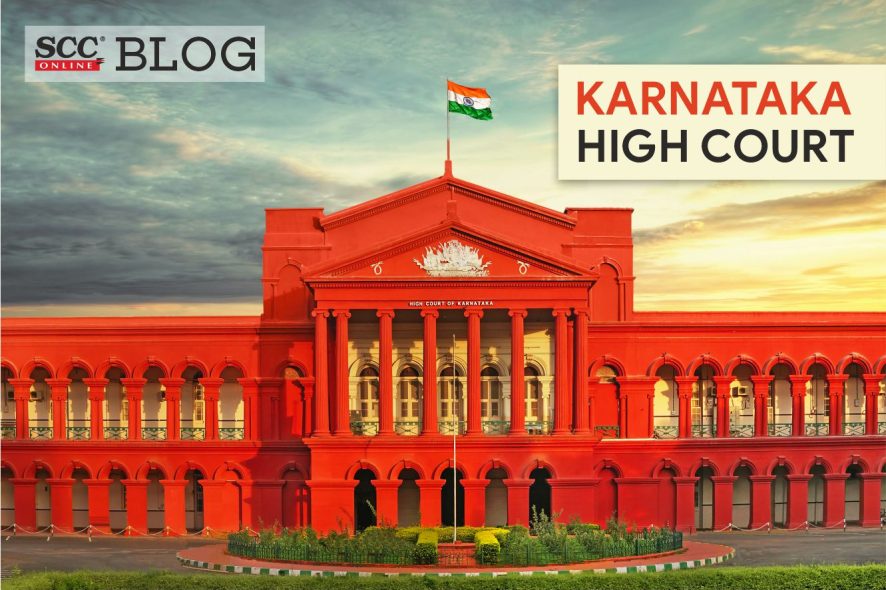Karnataka High Court: In the instant petition for quashment, the issue arose that whether a legal heir should be permitted to come on record and prosecute the case in place of the informant or with the death of the informant, the act initiated by the informant also dies? The Bench of M. Nagappasanna, J., while relying upon several decisions rendered by the High Courts of Madras and Allahabad, inferred that a genuine victim must be permitted to come on record and the definition of ‘victim’ as found in Section 2(wa) of CrPC cannot be rendered a restrictive meaning and must be liberally construed.
Facts of the Case: K.T. Rajashekar (Complainant/2nd Respondent), approached the Scania Commercial Vehicles (1st Petitioner) in the capacity of Proprietor of SRS Travels, a business establishment in the field of tours and travels in the country and with a fleet of more than 4000 buses. The complainant showed interest in procuring Scania buses and by entering into an agreement to purchases buses from the petitioners.
The purchases took place in batches between 2014 and September 2018 and total of 77 buses were purchased by the complainant from Scania. However, after purchase of buses, the complainant registered a complaint before the jurisdictional police on the ground that the buses had some malfunctioning in them, and that the complainant was burdened with numerous problems in the operation and maintenance of vehicles which has led to huge loss of finance and goodwill of his customers.
The registration of complaint drove the petitioners to the Court and an interim stay was granted by the High Court in June 2020. However, during the pendency of the subject petition, the complainant died. An application was filed by his legal representative (daughter), to come on record and prosecute the case further, which was objected by the petitioners.
The petitioners contended that the legal representative of an informant/complainant has no personal right to come on record. Arguing on the lines of “Actio personalis moritur cum persona”, the petitioners submitted that the complainant had registered the complaint on his personal right; and since the complainantis dead, the cause of action is dead as well.
Per contra, the respondent argued that the matter is at the stage of investigation and the informant, or his legal heir is a necessary party to the proceedings. The respondent prayed that the meaning of “victim” should be given a liberal meaning and permit legal heir of the complainant to come on record.
Observations: Perusing the facts and contentions presented, the Court observed that whether locus standi is alien to criminal jurisprudence and liberal interpretation of the word “victim” as defined in Section 2(wa), CrPC, are the main issues involved in the instant petition.
The Court further observed the definition of “victim” and “charge” as defined in the CrPC and referred to the decision of the Allahabad High Court in Suneel Kumar Singh v. State of U.P., 2019 SCC OnLine All 957, wherein the Court had stated that “the victim should not be kept aloof from the judicial process in which the wrongdoers are undergoing the process of ascertainment of his guilt for wrong committed by him”.
The Karnataka High Court also referred to a decision rendered by the Single Judge Bench of Madras High Court in Sathyavani Ponrani v. Samuel Raj, 2010 SCC OnLine Mad 3758, wherein the Court had concluded that, “The word ‘victim’ would also include a legitimate and genuine person representing a victim”. The Karnataka High Court further observed that the Madras High Court’s decision considered in detail the entire spectrum of law with regards to the concept of ‘victim’ and held that victim would be necessary to be heard and has locus to step into the shoes of the informant.
Decision: Based on the afore-stated observations, the Court noted that due to the acts of the petitioners, the proprietorship of SRS Travels suffered huge losses and the same were transferred to the legal representative who claims to be the only legal heir of the complainant.
It was concluded that even on a restrictive meaning of the word “victim”, in the peculiar facts of this case, the legal heir in the instant case must be permitted to come on record, as the matter is still at the stage of investigation and the police have not yet filed the charge sheet.
The Court also rejected the petitioner’s argument of “Actio personalis moritur cum persona” and held that in the peculiar facts of the instant case, as the cause continues, the legal heir who has stepped into the shoes of the complainant is entitled to agitate the cause brought up by complainant.
The Court therefore permitted the daughter of the complainant to come on record in place of the complainant as the legal heir as she has locus to continue the case on the allegations initiated by her father particularly in the light of the offences being under Sections 406, 420 and 120-B of the Penal Code, 1860.
[Scania Commercial Vehicles India Pvt. Ltd. v. State of Karnataka, 2022 SCC OnLine Kar 1590, decided on 03-09-2022]
Advocates who appeared in this case :
C.V. Nagesh, Sr. Advocate A/W Shwetha Ravishankar, Advocate, for the Petitioners;
K.P. Yashodha, HCGP FOR R1; Sandesh J. Chouta, SR. Advocate for Ismail M. Musba R2, Advocates for Respondents.
*Sucheta Sarkar, Editorial Assistant has prepared this brief.






